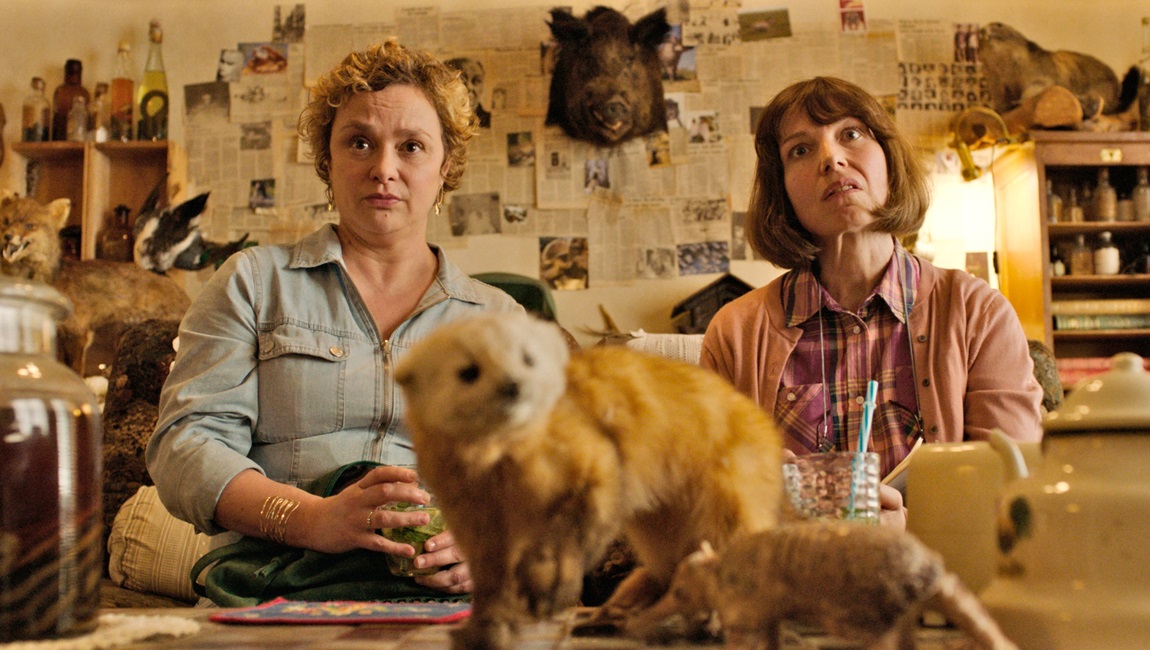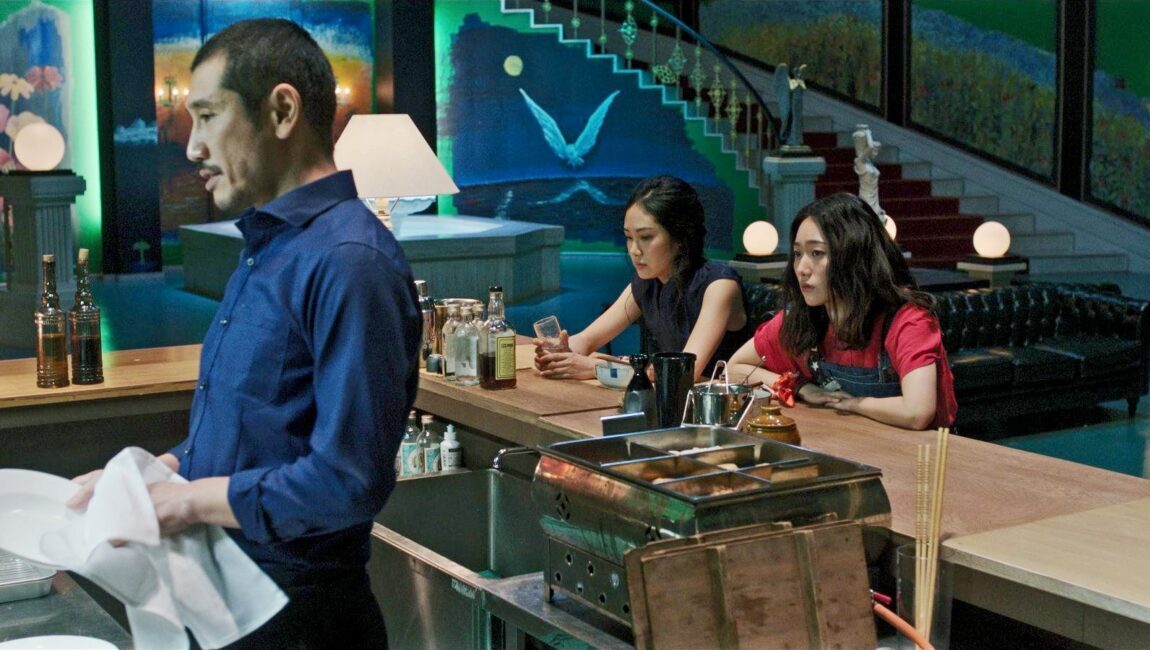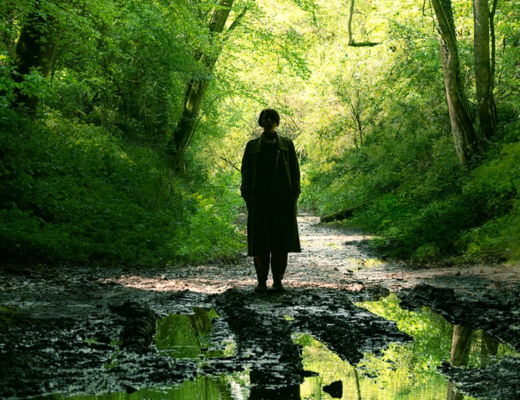Writing on Jean-Christophe Meurisse’s Bloody Oranges back in 2022, InRO’s Matt Lynch described it as a “glib little attempt at satirizing The Way We Live Now, the kind of thing that Really Makes You Think.” Two years have passed, and Meurisse is back with Plastic Guns, another Tarantino/Haneke pastiche that indulges the worst aspects — self-aware and on-the-nose dialogue, and a hectoring tone, respectively — of those particular filmmakers. It’s a painfully unfunny comedy full of stupid, unpleasant people doing ugly things. Indeed, the only thing Meurisse holds in more contempt than his characters is his audience.
The film begins with an immediate red flag — two coroners are performing a graphic autopsy on a nude body while bemoaning the state of true crime documentaries on Netflix, kvetching about how audiences demand a scene of violence every few minutes to jolt them back to attention. Get it? They then begin discussing the life and work of famed investigator Zavatta (Anthony Paliotta), apparently a figure of wild acclaim in the world of law enforcement. Meurisse then smash cuts to Zavatta strutting in slow motion through an airport, all cocky arrogance and clad head to toe in denim. The joke here is that it is immediately revealed that Zavatta is an incompetent blowhard, henpecked by a shrill wife who berates him for delaying their vacation and neglecting to help her pack. As Zavatta assists his small children in the restroom (and gets a face full of smeared shit for his efforts), he becomes convinced that he has spotted a fugitive, Paul Bernardin. Bernardin is wanted for murdering his wife and three children, so Zavatta calls in to the office and relays that the fugitive is traveling to Denmark. The authorities are waiting for him when he lands, except it’s not the murderer, but instead a totally different man, Michel Uzes (Gäetan Peau). Meanwhile, Léa (Delphine Baril) and Christine (Charlotte Laemmel) win a contest for citizen investigators (basically true-crime Internet sleuths), and they decide to take their prize money and investigate the Bernardin slayings. There’s yet another thread; the real Bernardin (Laurent Stocker) is hiding out in Buenos Aires, where he has started a new life and found love with a beautiful woman.
The film cuts artlessly between these various plot threads; Christine and Lea are largely incompetent, encountering racist landlords as they search Bernardin’s apartment for clues that the police might have missed and then promptly get drunk; Michel endures torture at the hands of the Danish police, while Meurisse introduces brief asides about the lack of international cooperation that has led to this case of mistaken identity (the French authorities want the suspect back immediately, while the Danish police, slowly realizing their mistake, try to prolong the suspect’s detention). The scenes with the real Bernardin seem to be intended as some kind of ironic counterpoint — look at this cold-blooded killer living it up in a tropical paradise! There’s even a moment where Bernardin saves a child during an unexpected seizure, leaving the locals to briefly beatify the man. It’s difficult to articulate just how ridiculous and shrill this film is; one suspects the filmmaker believes he is making a statement about the absurd vicissitudes of fate (or worse, making something Kafkaesque), but the film is so obnoxious, so stupid, as to be actively abject. A late pivot toward shocking ultraviolence is the final debasement, a cruel act from a terrible filmmaker who seemingly cannot imagine any other way to end the film. It’s an ugly film from an ugly director, which primarily leaves one with a burning desire that director’s jail was not just a turn of phrase but a literal place in which we could banish Meurisse
Published as part of Cannes Film Festival 2024 — Dispatch 2.







